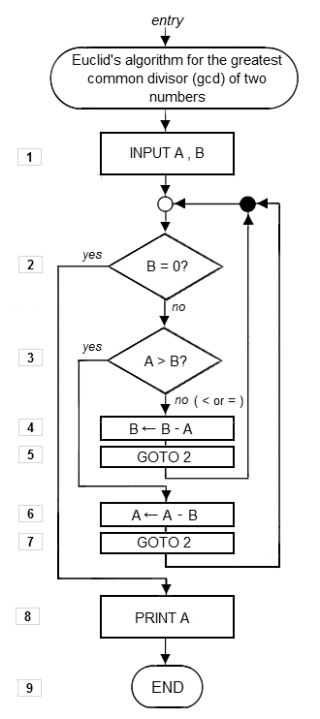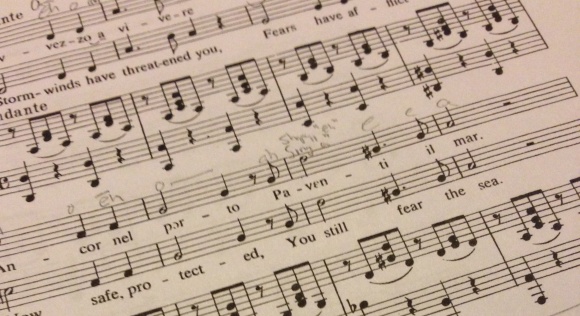
Image courtesy of http://commons.wikimedia.org/wiki/User:Wvbailey
If you go to karaoke a lot, and you go to different KJ shows, you’ll notice that there are a variety of methods that KJs select who sings in what order (especially for 2nd, 3rd rounds of singing on a busy night). Being the computer nerd I am, I’m always watching and thinking about these “algorithms” and why KJs choose one way of doing things over another.
KJs must balance a number of goals when coming up with a system to rotate in singers on a given night of karaoke:
- Fairness to people waiting – All else being equal, people who wait longer should expect to singer sooner than people who haven’t waited as long
- Fairness to people who show up early – Karaoke nights usually start slow, and KJs tend to want to give people an incentive to show up early — the same reason bars have happy hours. Also, if you have people spread out over a longer period of time, you can get more people to sing.
- Minimizing wait time for new singers (people showing up later) – Karaoke is largely a casual entertainment experience, and when possible, KJs would like to minimize the wait for new people who show up for karaoke. If they didn’t, then karaoke would turn into a “plan ahead” insiders-only event. Most KJs don’t want that.
- Providing an entertaining experience to those not singing – Some KJs believe in ordering the singers by the songs singers want to sing. By putting together songs that have the same energy, or flow together, a KJ can actually make the experience better for the watchers (or so the theory goes).
- Providing a “known experience” to regular singers – KJs live and die by filling bars, and one of the best ways to do that is have a solid crowd of regular singers at their gigs. If a KJ puts on a show that gives the regulars a more predictable experience that they like, they are more willing to show up on a regular basis and keep the gig going over time.
Now many of these goals conflict, and some KJs probably aren’t interested in all of them. The singer-selection system a KJ chooses reflects their priority among these goals. If you go to karaoke, make sure you understand the system, and try to understand what goals the KJ is most interested in achieving. If you are a KJ, have you thought about your system given these goals?
Let me describe the system that Roger Niner uses, and which I personally like the best among the various KJs whose shows I’ve gone to. I don’t know how unique it is, but since its the one I’m most familiar with, I’ll describe it here:
- Singers sign up on a sheet, and the first hour or so of singers (in the order they sign up) are the “first rotation”. Singers continue signing up on the sheet as they want throughout the night.
- After the first rotation, new singers are alternated in with old singers. So if you missed the first rotation, you get interspersed with old singers in the second rotation. Hence, the second rotation has exactly twice the number of singers (assuming there are that many signed up) as the first rotation.
- After the second, rotation the “new singer/older singer” step is repeated. That is, folks who haven’t sun are inserted before people who’ve sung in the second or first rotation.
Lets spin this out a bit, if A represents a first-rotation singer, B represents a new singer in the second rotation, and C represents a person who first sings in the third rotation, then we’d have the following patterns:
First Rotation: A, A, A …
Second Rotation B, A, B, A, B, A
Third Rotation: C, B ,C, A, C, B, C, A
etc.
There are several implications:
- It benefits you to show up early so as to get in the first rotation. This guarantees you slots in the 2nd, 3rd, etc rotations (assuming a rotation doesn’t get cut off because of closing time)
- If you show up later in the night, and miss the 1st rotation, and you get into the 2nd or 3rd rotation, you’ll be up before anyone else you see sings twice, unless the “current rotation” is full, in which case, you are delayed to the next rotation (or beyond)
- Each rotation approximately doubles the length of the previous one
- There’s always an opportunity to get in the rotation, unless you show up so late that even the last rotation is full (note that sometimes its not clear until later that a rotation is full).
- There’s no judgement calls being made by the KJ – its all mechanical, based on when you sign up (duets add a wrinkle which are hard to deal with). Regulars know the system and aren’t disappointed when on a busy night they have to wait a long time.
- You can pretty easily tell when you’ll be singing next – if not the exact time, then at least by the number of singers.
- The order of singers between rotations doesn’t change, except that each rotation inserts a new alternation of singers, so you don’t get the same singers back to back.
- The last rotation tends to be very long if things are at all busy – but this makes sense, as those who don’t want to wait that long know to show up early 😉
So what is your experience at karaoke? If you KJ, what system do you use and why?
